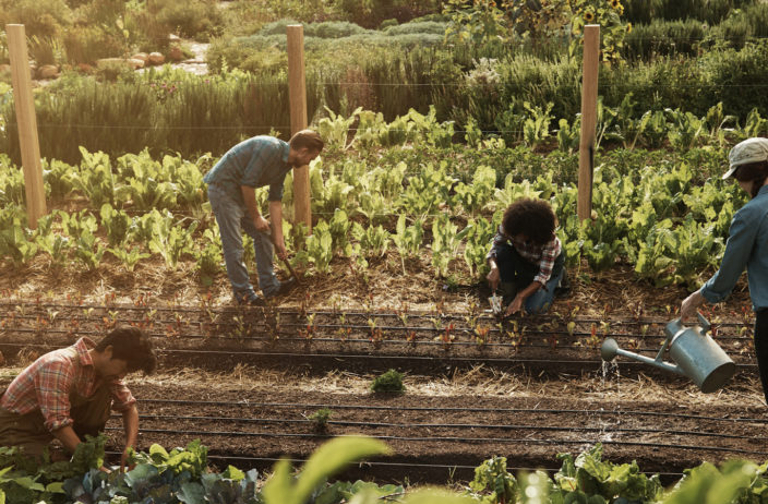A first-of-its-kind educational partnership between the Organic Seed Alliance (OSA) and the Multinational Exchange for Sustainable Agriculture (MESA) is training hundreds of new seed growers in organic production. Through an online certificate-granting educational platform and an accompanying structured internship program, the two groups hope to train enough farmers to help supply meet demand—and make a U.S. Department of Agriculture (USDA) loophole irrelevant.
According to the OSA’s survey of 1,365 organic-certified farmers in 47 of the United States, fewer than one in five organic-certified farmers are able to plant their entire acreage with organic seed. In other words, most are growing organic vegetables from conventional seeds. The USDA allows these farmers to still use “Certified Organic” labels on the foods they produce because there is not enough organic seed in the marketplace.
This loophole, detailed in the USDA’s Guidelines for Organic Crop Certification, is triggered when sufficient organic seed is not commercially available. To be considered commercially available, the seed must be accessible “in the appropriate variety, quality, form, [and] quantity the producer needs.”

Now on its second crop of new seed producers, the training program draws on established organic seed growers as educational resources, prioritizing on-farm learning rather than classroom curriculum. The internship experience is reminiscent of traditional farmer-to-farmer knowledge transfer and pairs interns with seasoned growers for six months. While working on host farms, interns complete an accompanying online Certificate in Organic Seed Production that OSA and MESA also administer. As they near completion of the course, interns are afforded the opportunity to connect with regional seed companies to support access to local markets.
OSA and MESA have opened up the online coursework for the certificate program to the wider public, also free of charge. Organizers report 318 students from 25 states and 14 countries in their 2017 roster. Students have access to both live and recorded webinars, discussion forums, and reading lists, and most materials are provided in both English and Spanish. Each webinar covers a distinct component of seed production knowledge, such as variety trials and crop selection, contracting and economics, seed cleaning and recordkeeping, and diseases and pests. The students are also invited to connect through online forums and share assignments with the 360 students in MESA’s other two courses, the Applied Agroecology Certificate Program and Bay Area Farmer Training Course.
While all new seed farmers face significant hurdles when entering the market, organic seed farming is a particularly knowledge-intensive business. According to Micaela Colley, Program Director at OSA, the Seed Internship Program is designed to give beginning farmers the necessary leg up to finally bring more of the right kind of quality seed to the market.

Colley says that OSA hopes “these trainings will empower more organic producers to integrate seed saving and variety development into their own diversified operations, thus expanding the on-farm conservation of seed and reducing farmers’ dependence on conventional seed sources.” Organic breeding has seen decades of under-investment by most major actors, including the private sector, federaland state governments, and multinational NGOs.
Leah Atwood, Director of Programs and Partnerships at MESA, emphasized that the program is coming online at a critical time. She cites “the growing need and demand for organic and regionally-adapted seeds” and that “the average age of farmers [is] still on the rise.”
In 2016, the program’s pilot year, four interns and four host farms participated, with two of those interns moving directly into producing seed themselves in 2017. This year, the program has received 13 applicants for intern slots, from nine states and four countries. Colley calls the potential for expansion “limitless” because of the open nature of the online matchmaking system. OSA and MESA provide a register of contact information to all approved participants, both farms and interns, but leave it to them to translate the list into real-world connections.





